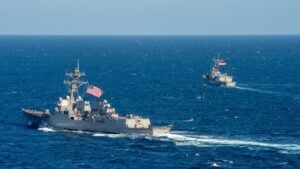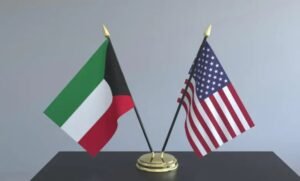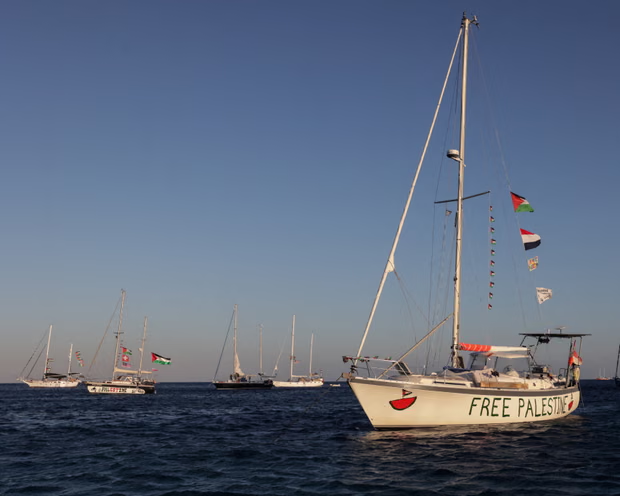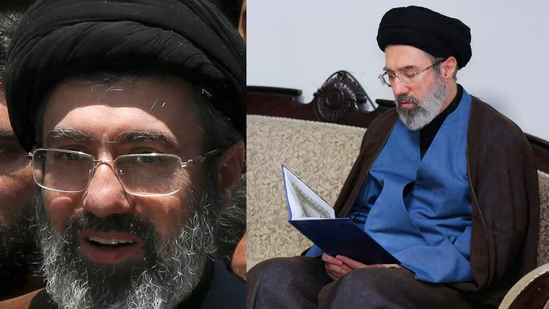Israeli naval forces intercepted a pro-Palestinian flotilla approximately 75 miles off the coast of Gaza as the vessels attempted to breach the maritime blockade and deliver humanitarian aid. The boarding began with the flotilla’s lead ship, Alma, where Swedish climate activist Greta Thunberg and other passengers were taken into custody.
Video released by the Israeli foreign ministry showed Thunberg sitting on deck surrounded by soldiers. According to the flotilla’s tracking data, 13 vessels were stopped or intercepted as of early Thursday, but organizers said the remaining boats were continuing toward Gaza, about 46 nautical miles from their destination.
In a video message posted to Instagram before the interception, Thunberg warned of the upcoming boarding, stating: “My name is Greta Thunberg. I am onboard the ship Alma. We are about to be intercepted by Israel.” She and other activists on the Alma were later detained and transported to the Israeli port of Ashdod.
The Global Sumud Flotilla consists of more than 40 civilian boats carrying approximately 500 parliamentarians, lawyers, and activists, all aiming to bring humanitarian supplies to Gaza despite repeated Israeli warnings to turn back. Videos shared on Telegram by participants showed individuals holding passports and stating that they had been taken to Israel against their will, emphasizing that their mission was peaceful.
The flotilla was sailing in international waters north of Egypt when the interceptions began on Wednesday afternoon. Israeli authorities consider the area a high-risk zone and have warned vessels attempting to breach the blockade in the past. Around 7:25 p.m., about 20 Israeli naval ships approached the flotilla, ordering the vessels to turn off their engines. Live footage showed passengers wearing lifejackets in a semi-circle on deck as the interception took place.
Footage broadcast by Sky Italia showed activists being hit with water jets, while loud bangs, believed to be stun grenades dropped from drones, were heard near several boats. The flotilla called the boarding illegal and confirmed that cameras were offline while military personnel boarded the vessels.
The Israeli foreign ministry confirmed the interception, stating the flotilla was instructed to change course toward Ashdod, where aid could be unloaded and safely transferred to Gaza. Israel said the flotilla was approaching an active combat zone, violating the blockade, and dismissed the mission as a publicity stunt. Italian authorities reported that the Israeli government assured them no violence would be used against the activists during the boarding.
The interception sparked protests across Italy, including Bari, Bologna, Genoa, Milan, Naples, Pisa, and Rome. Trade unions also called for a general strike in support of Palestine.
Israel accused some flotilla members of links to Hamas but provided no evidence. Activists strongly denied the claims, saying Israel was attempting to justify its actions. European governments, including Spain and Italy, which had escorted the flotilla for part of its journey, urged the activists to avoid confrontation. Spain’s prime minister defended the mission as humanitarian, while Italy’s prime minister warned it could complicate recent proposals to resolve the Gaza conflict.
The flotilla departed from Barcelona a month ago and had planned to reach Gaza by Thursday morning if undisturbed. Israel’s naval blockade of Gaza, intensified in 2009 after Hamas seized control in 2007, has been repeatedly condemned by the United Nations as a violation of international human rights and humanitarian law.
International law experts note that a blockade can be intercepted if militarily justified, such as preventing weapons from reaching Gaza. However, the flotilla maintains that it is unarmed and focused solely on delivering humanitarian aid, which international law protects. Previous attempts to break the blockade have been met with force. In 2010, ten Turkish activists were killed when Israeli commandos raided the Mavi Marmara ship, the lead vessel in another flotilla heading to Gaza.
The recent interception illustrates the ongoing tension surrounding Gaza’s blockade, the risks faced by civilian aid missions, and the continuing debate over the legality of Israeli naval actions in international waters. Activists insist that their work is humanitarian, while Israel maintains that its blockade and security measures are lawful and necessary for regional security.







